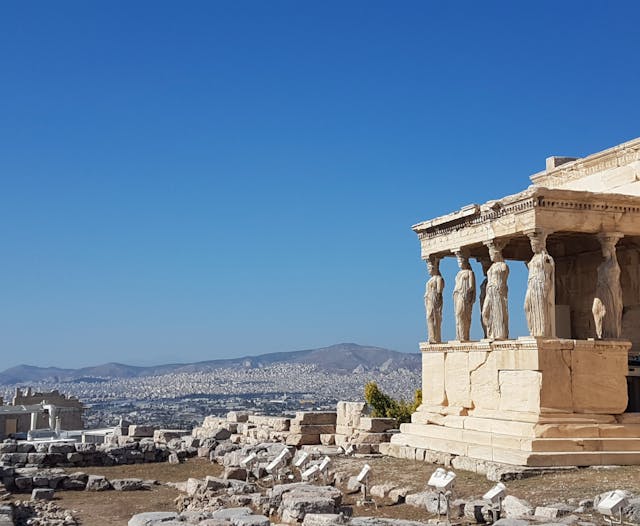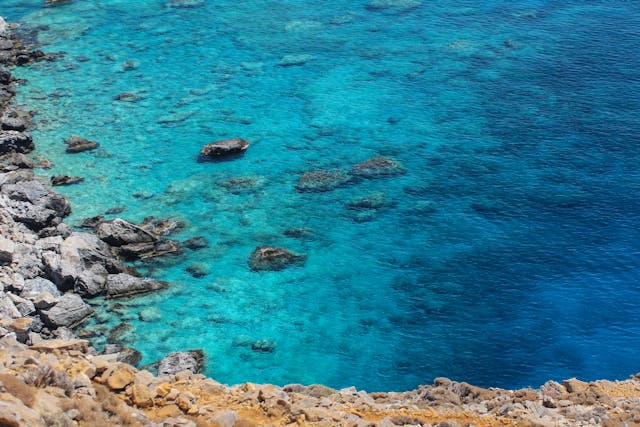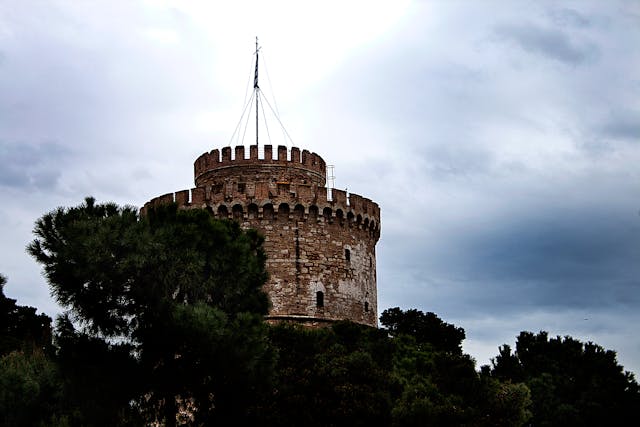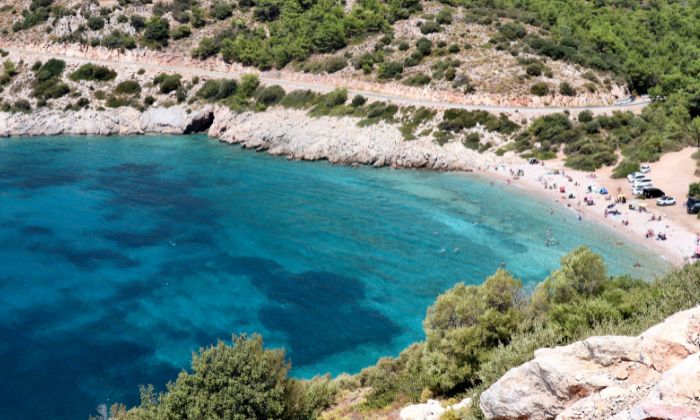
A Greek summer vacation offers families a mix of culture, sunshine, and simple outdoor fun. Parents can relax while children explore beaches, villages, and ancient sites. Greece keeps travel distances manageable, which reduces stress with young kids. Clear waters and safe swimming areas help families feel comfortable. Fresh food options suit different ages and tastes. Many towns stay lively in summer without feeling overwhelming. This balance makes Greece a reliable choice for a family getaway.
Combining Learning and Fun With a Classical Greece Tour
Many families add a classical Greece tour that includes Delphi, Athens, and Mykonos. In Delphi, children can stand near the Temple of Apollo and imagine ancient gatherings. In Athens, families explore the Acropolis, Plaka, and the Acropolis Museum to connect history with daily life. Mykonos adds a relaxing island break with organized beaches and waterfront cafés. These destinations keep travel distances reasonable through careful route planning. Guides often share stories that help children understand daily life in ancient times.
Finding Your Place
When planning a vacation to Greece, choosing the right spot can make all the difference in your experience. Choosing a place that matches your lifestyle significantly shapes the entire experience in destinations like Paros or Crete. Some families prefer the quiet beaches of Agios Prokopios in Naxos. Others enjoy the lively promenades of Mykonos Town. Recent remote work relocation trends have encouraged longer stays in places such as Chania and Heraklion. Many apartments in these cities now include reliable internet and kitchen space. Parents can balance light work tasks while children rest after swimming. Selecting the right island base creates comfort and routine.
Relaxed Beach Days in Naxos
Naxos offers wide beaches that suit families with younger children. Agios Prokopios and Plaka Beach provide shallow waters and soft sand. The main town, called Chora, features the large Portara arch overlooking the harbor. Evening walks along the waterfront feel safe and easy. Local tavernas serve grilled fish and simple pasta dishes that appeal to all ages. The island remains less crowded than Santorini or Mykonos. Naxos delivers calm days without sacrificing scenery.
Exploring Zakynthos and Its Famous Coastline
Zakynthos draws families with its bright blue waters and dramatic cliffs. The Blue Caves near Cape Skinari attract visitors on guided boat tours. Tsilivi Beach offers gentle waves that help children feel secure in the water. The island also protects sea turtles around Laganas Bay. Families can join responsible boat trips that respect wildlife. Restaurants in Zakynthos Town serve fresh seafood and local dishes. The island blends natural beauty with practical comfort.

Crete’s Historic Depth and Coastal Variety
Crete provides one of the most complete island experiences for families. In Heraklion, the Palace of Knossos introduces children to the story of King Minos. Chania offers narrow streets and a Venetian harbor perfect for evening strolls. Elafonissi Beach features shallow lagoons with pink sand tones. Rethymno presents a smaller town feel with a historic fortress. Crete’s size allows families to explore mountains and the coastline in one stay. The island supports active mornings and relaxed afternoons.
Medieval Charm in Rhodes
Rhodes gives families a mix of beach time and stone-paved streets. The Old Town of Rhodes allows children to walk safely within medieval walls. The Palace of the Grand Master sparks imagination and curiosity. Elli Beach sits close to the town center for easy access. Short bus rides connect Lindos and its white houses overlooking the sea. Ice cream shops and small markets add simple pleasures. Rhodes balances history with practical convenience.
Calm Exploration in Corfu
Corfu stands out with green hills and Venetian architecture. Paleokastritsa Beach provides clear water with gentle slopes. Corfu Town offers shaded alleys and colorful facades. Families can take short boat rides along the coast. The Achilleion Palace introduces another layer of history. Local bakeries sell pastries that children enjoy during afternoon breaks. Corfu combines culture and greenery in a compact setting.
Sailing Through the Aegean Jewels
Island hopping across the Aegean Jewels creates variety without long travel days. Ferries connect Paros, Mykonos, and Santorini with regular schedules. Children often enjoy watching harbors as boats approach. Mykonos offers organized beaches, such as Ornos, for families. Paros presents calm fishing villages, including Naoussa. These Aegean Jewels show different styles of Cycladic architecture. Planning short ferry routes keeps energy levels balanced.
Discovering Santorini Beyond Oia
Santorini attracts visitors with dramatic caldera views. Families can visit Oia early in the morning to avoid large crowds. Perissa Beach provides black sand and organized facilities. Boat tours around Nea Kameni volcano introduce simple geology lessons. Pyrgos village offers a quieter base away from busy streets. Restaurants across Fira adjust menus for younger guests. Santorini becomes manageable with thoughtful timing.
Meteora’s Unique Rock Formations
Meteora surprises families traveling from Athens to northern Greece. Monasteries rest on tall rock pillars that spark curiosity. Well-marked paths allow safe walking for older children. The nearby town of Kalambaka offers simple family hotels. Clear viewpoints provide photo opportunities without steep climbs. Local cafés serve fresh juice and pastries. Meteora adds a different landscape to a summer itinerary.
Thessaloniki’s Waterfront Energy
Thessaloniki provides a lively yet manageable urban stop. The White Tower stands along the city’s long waterfront promenade. Families can rent bicycles for relaxed rides near the sea. Aristotelous Square gives space for children to move freely. Museums such as the Archaeological Museum introduce Macedonia’s history. Markets display fresh fruit and local sweets. Thessaloniki adds a northern flavor to the journey.
Outdoor Adventures in Pelion
Pelion combines mountain villages and Aegean beaches. Makrinitsa offers stone houses and panoramic views. Beaches such as Mylopotamos provide clear water framed by cliffs. Families can drive short distances between the mountain and the sea. Local guesthouses in Tsagarada serve homemade breakfasts. Trails through shaded forests suit active children. Pelion balances nature and tradition.
Practical Planning for a Greek Summer Vacation
A Greek summer vacation benefits from clear planning in cities such as Athens and islands such as Crete. Booking accommodations early in Chania or Naxos secures larger family rooms. Renting a car in Rhodes or Corfu improves flexibility. Sunscreen remains essential during beach days in Santorini and Zakynthos. Parents should schedule short ferry transfers between Paros and Mykonos. Many beaches in Elafonissi and Paleokastritsa offer umbrella rentals. Thoughtful planning keeps everyone comfortable.
uilding Lasting Memories Across Greece
A Greek summer vacation across Athens, Crete, Naxos, and Rhodes creates shared memories that stay strong over time. Children learn history at the Acropolis and at Knossos in Heraklion. Families swim in Zakynthos and relax in Corfu’s green bays. Each destination adds a new setting without overwhelming travel time. Simple meals in Chania or Nafplio become part of family stories. Greece supports both exploration and rest in equal measure. With smart choices, families return home with meaningful experiences.
Photos used:
https://www.pexels.com/photo/the-historical-ancient-acropolis-temple-of-parthenon-in-greece-6924329/
https://www.pexels.com/photo/photo-of-rocky-shore-during-daytime-1711326/
https://www.pexels.com/photo/brown-concrete-tower-near-on-green-trees-955672/









